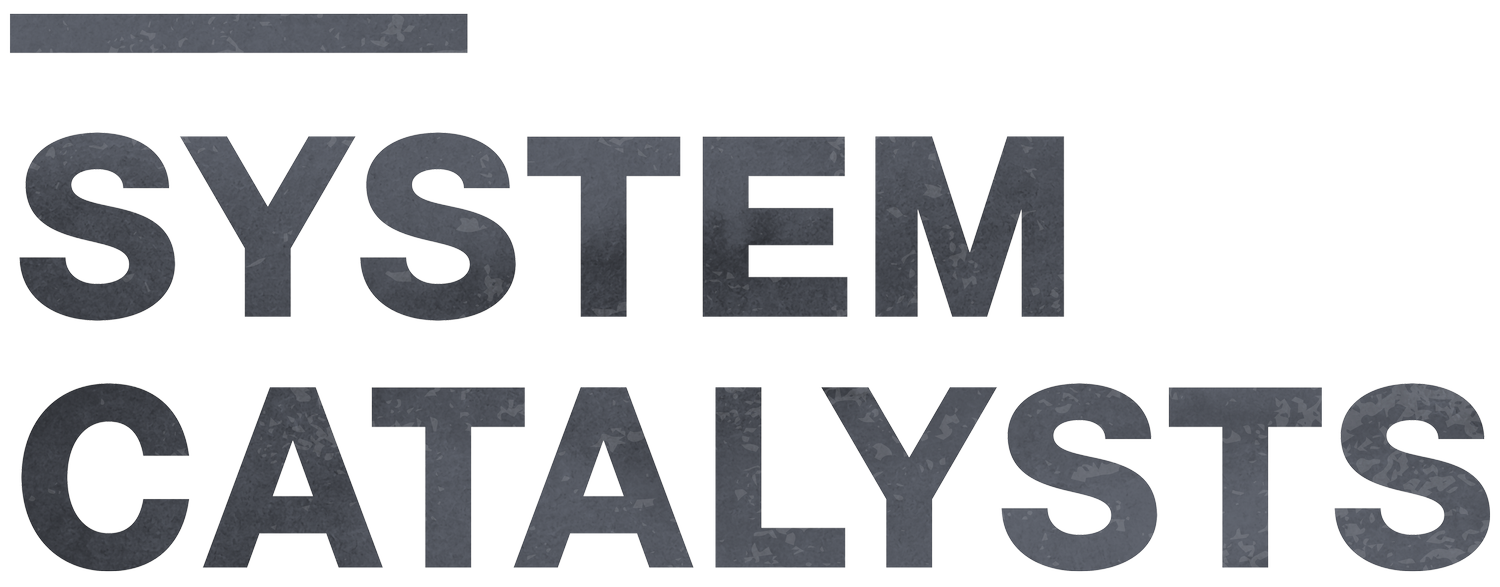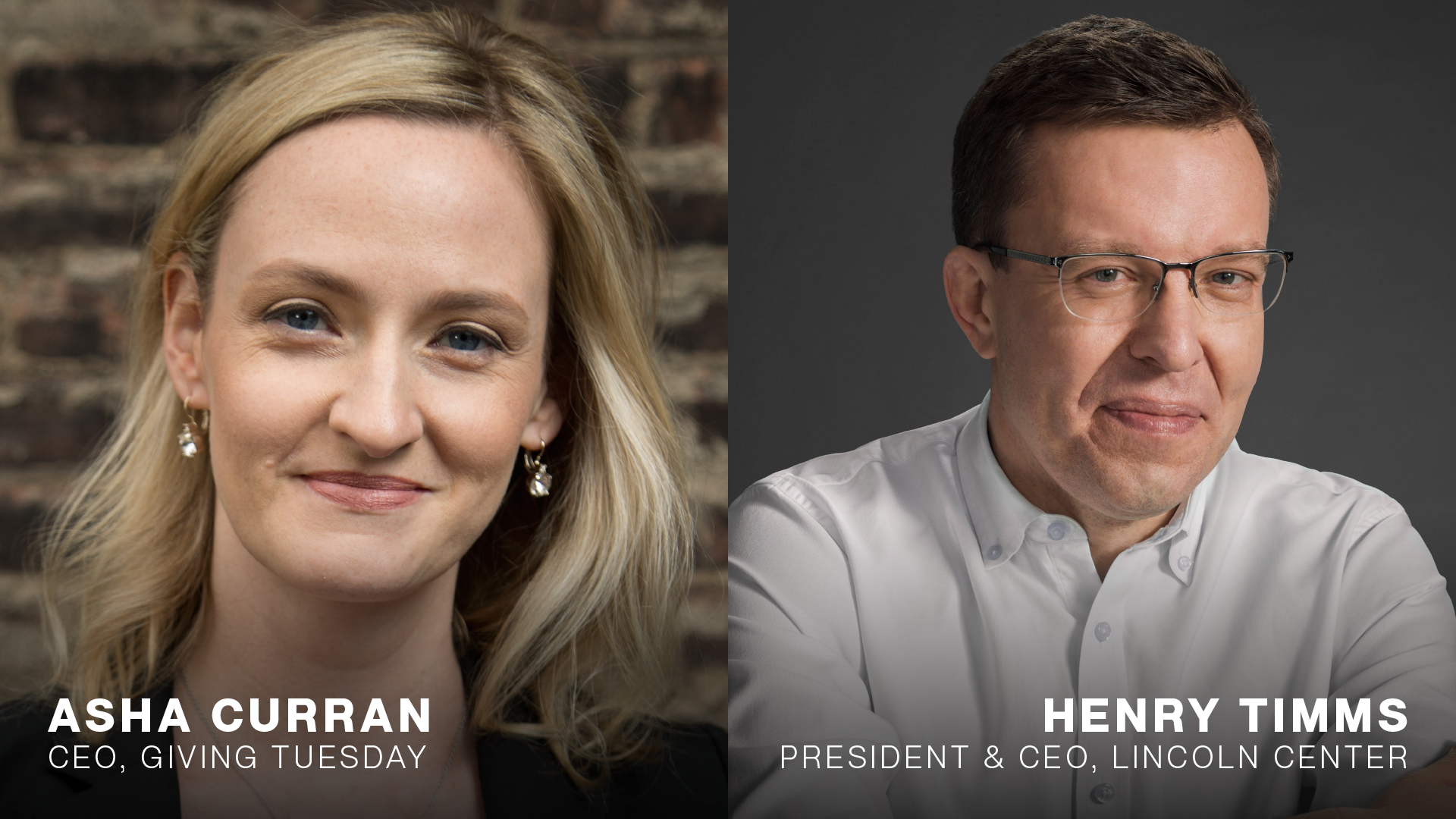
An Intro to Systems Change
(by the Catalysts that do it every day)
Let’s say you want to solve a big problem in the world -
something really complex.
Maybe you want to…
• End starvation in Yemen?
• Solve homelessness in Southern California?
• Fix something in U.S. healthcare?
• Change a safety policy with public schools in your state?
You know the Current system isn’t working.
But you’re just one person—
what can you do?
Maybe you want to fund a project?
or you are a leader who needs funding…
Either way, how do you create lasting solutions for problems that have deep roots and have been around for decades?
The answer is within a phrase you may have heard: Systems Change.
It’s a concept that’s been gaining momentum over the past several years, and though it may seem obvious on the surface, the idea is that in order to solve the big problems of the world, you have to change the underlying systems and structures behind these problems.
And this is where it gets both complicated and (very) interesting.

We all know the old, top-down way of solving big problems: a white Western organization goes to Africa, for example, to “fix” something without understanding a few crucial things…
They don’t understand:
• The environment they are dropping into, or
•The people they are trying to help.
They are not collaborating with anyone else in the situation actively working on the same issue.
Though they may be well-intentioned, their primary obligation is to the donors back home, and as long as they can say “mission accomplished” to them, who’s to know the whole story?
but in the last two decades…
With some leaders applying principles of Systems Change, we’ve learned that creating real solutions to big problems is possible. It’s complicated, but it actually works. And there are two common things that are required to make it work:
1 - Solutions that are locally driven and provided by networks of people working on the issue together.
(There is no silver-bullet solution that can be implemented by one person or one organization alone.)
2 - There is always a System Catalyst, a leader who brings people together, puts their ego aside, and is willing to listen and collaborate.
what’s a system catalyst?
Our names are Jeffrey Walker and English Sall, and we host the System Catalysts Podcast.
For the past few years, we've become fascinated with these System Catalysts who rally people towards scalable, sustainable and systemic change.

Now for a quick disclaimer -
We are not in-the-field experts in Systems Change. We are advocates and donors, but we know who the experts are, and we’ll introduce you to some of them in the episodes below.
What’s The best way to learn systems change?
The funny thing about Systems Change is that it’s not an easy thing to learn just by reading a book about it. The best way to understand how it works is to hear the stories of the people who are actually doing it every day, in their own field.
This is why we started the System Catalysts podcast last year.
We wanted to give these leaders a place to tell their stories. And these are stories that need to be heard – the failures, the successes, the collaborations, the pivots. All of them contain priceless lessons for anyone looking to solve big problems.
And so your education in Systems Change is in the conversations here below. You can start wherever you like, but once you get hooked, you will want to hear them all.
Thanks for listening,
(Get started below!)
Jeff & English
where do you want to start?
click below to choose your first episode
episodes about:
Collaboration & Leveraging NetworkS
YOU ARE IN A CAR WITH RICHARD BRANSON & YOU OVERHEAR HIM TALKING ABOUT PHILANTHROPY. WHAT DO YOU DO?
How to build world-changing partnerships with Jean Oelwang, CEO of Virgin Unite
REFUGEES ARE AN ASSET, NOT A BURDEN
Creative system level-solutions + an entirely new way to view the GLobal Refugee Crisis with Sasha Chanoff of Refuge Point
episodes about:
Centering in Locally-Led Change
BUILDING A GLOBAL MOVEMENT: GIVING TUESDAY
How this global, billion dollar movement is founded on local organizations with Founders, Asha Currin & Henry Timms
WHEN BLACK WOMEN WALK TOGETHER, THINGS CHANGE WITH GIRLTREK
Two friends wanted to fix a systemic issue: Black women getting sicker and dying younger due to centuries of racial injustice. Did they go to the healthcare system (or any institutions plagued by systemic racism)? Nope. They started walking.
episodes about:
Data-Driven Change
USING HARD DATA TO FIX A BROKEN ORGAN DONATION SYSTEM
(SO PATIENTS WON'T DIE WAITING FOR A TRANSPLANT.)
Why are 100,000+ Donated organs are trashed each year? And how data can fix it…
SOLVING HOMELESSNESS with DATA | ROSANNE HAGGERTY & DAN HEATH
Want to know how to make a systemic change on a big problem? Get organizations together to share data…














